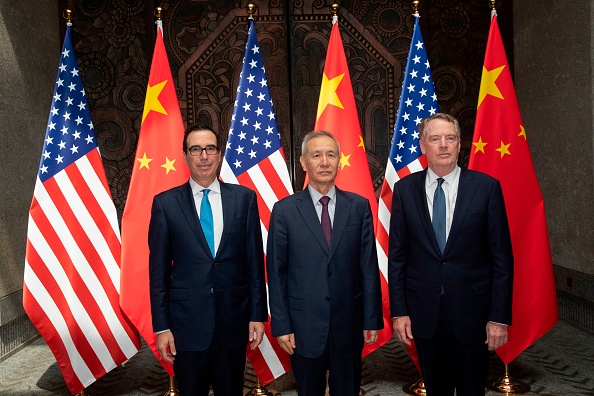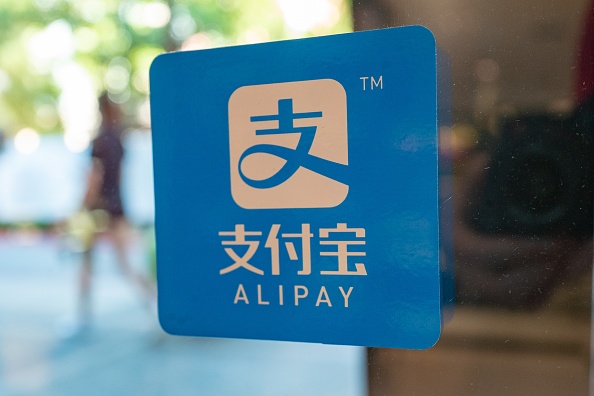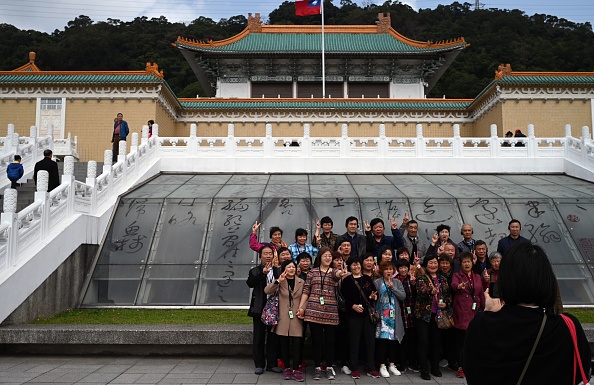
 Ratcheting Up the Crisis
Ratcheting Up the CrisisPresident Trump has abruptly escalated the U.S.-China trade war, saying that the United States would add a 10 percent tariff to a further $300 billion worth of Chinese imports starting September 1. Virtually every product China exports to the United States would now be taxed, ranging from everyday consumer products like children's toys and clothing, to tech products like iPhones and laptops. This would come on top of the current 25% tariffs on $250 billion worth of imports from China and would be certain to hit everyday American consumers. More on the tariffs' impact on U.S. consumers here.
Both the Chinese government and the stock markets reacted strongly, with the Foreign Ministry spokesperson saying that China will have to take strong necessary countermeasures, and the S&P slumping in its biggest weekly decline of the year.
As U.S. officials wrapped up the latest round of trade negotiations in Shanghai with no real sign of progress, the next round was announced for September in Washington. Prospects look bleak for a near-term truce, as Trump accused Beijing of stalling negotiations with the hope that he loses reelection in 2020 so they can restart talks with a new President.
 An Interconnected World
An Interconnected WorldDespite a fractious trade war, the United States and China are still interconnected in the digital domain, with ripple effects of new technologies flowing both ways. Salesforce has announced a partnership with Alibaba, with the Chinese firm selling Salesforce's cloud-based software in China. Hoping to double its annual revenue by 2023, Salesforce is doubling down on the Chinese market.
In other tech news, Facebook's announcement earlier this year to launch a digital currency called Libra has been keeping Beijing on its toes. The People's Bank of China has been planning its own cryptocurrency since 2014, and China views this new digital currency as a possible threat to its own mastery of financial data collection, according to Chuanwei Zou, chief economist at Bitmain, a large Chinese company involved in mining cryptocurrencies. Facebook's Libra is set to launch in 2020, straining Beijing's plans to lead the global financial transactions systems.
Meanwhile, U.S. computer companies are suffering as a result of the trade war, with higher costs and increased anxiety impacting their bottom line. In May, the Trump administration barred U.S. companies from working with China's Huawei due to national security concerns. Seven U.S. CEOs recently met with President Trump, stating that the ban is hurting their businesses and asking for an easing of restrictions.
 Vacation OverAs cross-strait tensions heat up, China has suspended a program allowing individual leisure travelers from 47 cities in China from going to Taiwan. The travel program had been tested in Beijing, Shanghai, and Xiamen, and then rolled out to other cities across the country. But amid heightened clashes over arms sales from the United States and a visit by Tsai Ying-wen to New York, the program will be revoked altogether. The move is likely to reduce tourism to Taiwan by 700,000 over the next six months, and cost Taiwan a total of $900 million.
Vacation OverAs cross-strait tensions heat up, China has suspended a program allowing individual leisure travelers from 47 cities in China from going to Taiwan. The travel program had been tested in Beijing, Shanghai, and Xiamen, and then rolled out to other cities across the country. But amid heightened clashes over arms sales from the United States and a visit by Tsai Ying-wen to New York, the program will be revoked altogether. The move is likely to reduce tourism to Taiwan by 700,000 over the next six months, and cost Taiwan a total of $900 million.
Prepared by China-US Focus editorial teams in Hong Kong and New York, this weekly newsletter offers you snap shots of latest trends and developments emerging from China every week, while adding a dose of historical perspective.
- 2019-07-26 Playing Defense
- 2019-07-19 “Stain of the Century”
- 2019-07-12 Whichever Way the Wind Blows
- 2019-07-04 A Gentlemen’s Agreement
- 2019-06-28 A Truce on the Horizon?
- 2019-06-22 Three’s A Crowd
- 2019-06-14 Battle for Hong Kong
- 2019-06-07 Panda Diplomacy
- 2019-05-31 Trade Diversions
- 2019-05-25 Farm Aid or Band Aid?
- 2019-05-17 Risky Business
- 2019-05-10 Two Steps Forward, Two Steps Back
- 2019-05-03 The Final Laps?
- 2019-04-26 The Great Turbine Caper?
- 2019-04-19 Sowing Seeds of Tension
- 2019-04-12 Slow or Steady?
- 2019-04-05 The Last Mile is The Hardest
- 2019-03-29 From Negotiation to (Smart) Competition
- 2019-03-23 Xi Hits the Road
- 2019-03-16 Proceeding With Caution
